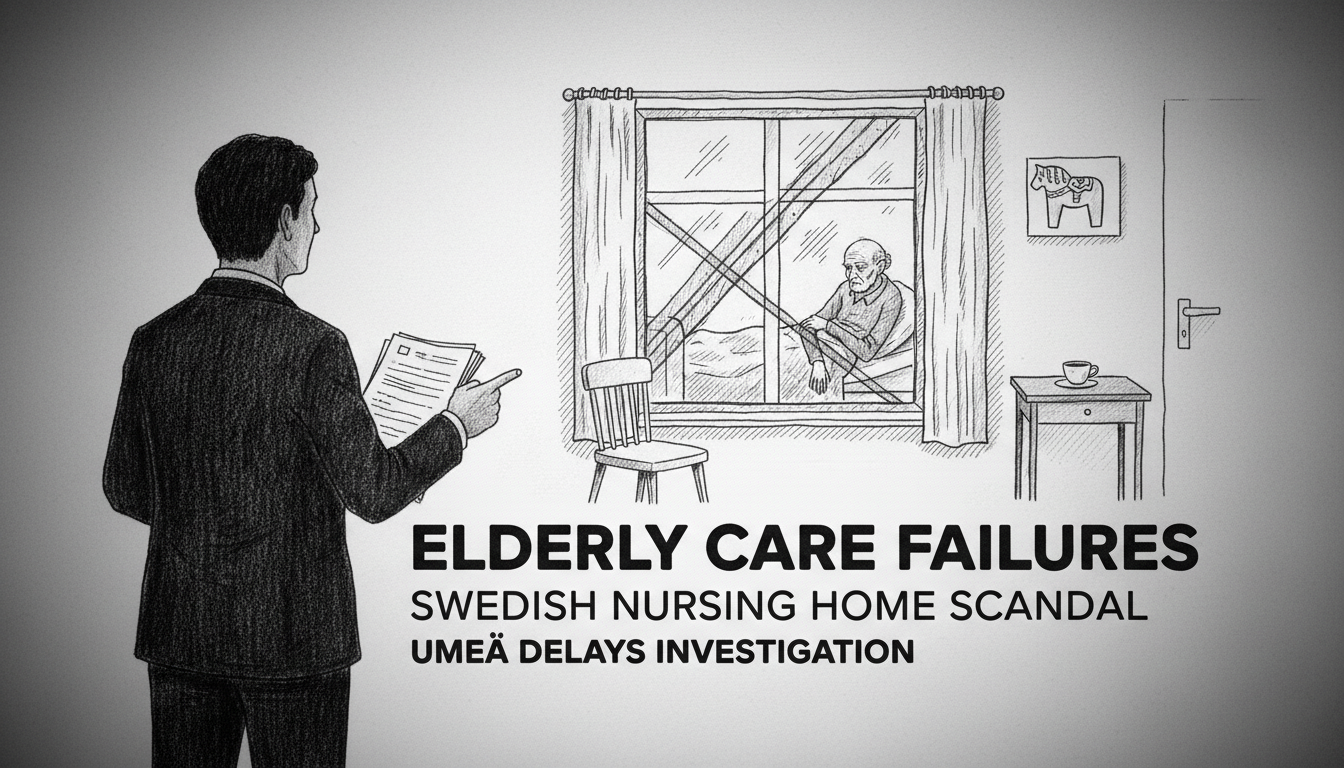A former employee has broken her silence about systemic failures at a Swedish nursing home. The Dragonen elderly care facility in Umeå faces mounting scrutiny after numerous care quality complaints and the death of an 82-year-old resident under suspicious circumstances.
Susanne Kovacs worked at Dragonen in multiple periods, most recently between 2021 and 2023. She describes long-standing problems with underqualified staff and inadequate care standards. "You cannot put in people who don't know how to do the work," she stated bluntly about the staffing situation.
Umeå municipality now plans an external investigation into working conditions and care quality at the facility. The probe comes after management acknowledged persistent shortcomings despite previous improvement attempts.
Charlotta L. Barsk, head of care facilities for Umeå municipality, admitted their previous measures proved insufficient. "We implemented initial measures in 2023 and tried many different approaches," Barsk said. "The effects appear but don't become sustainable. Had we known the problems were recurring, we would have commissioned this external investigation earlier."
Yet the promised external review faces delays. The municipality hasn't yet contracted any external party to conduct the examination. Officials cannot provide any timeline for when the investigation might begin or conclude.
The communications director for elderly care administration confirmed they're attempting to schedule an interview with the HR manager next week but noted "there isn't much to say at the moment."
This case highlights broader challenges in Sweden's elderly care system, where staffing shortages and high turnover frequently compromise care quality. Sweden's municipalities bear primary responsibility for elderly care under the Social Services Act, but many struggle with recruitment and retention of qualified personnel.
The situation at Dragonen reflects a pattern seen across Nordic countries, where aging populations increase pressure on care systems. Similar incidents have occurred in Norway and Denmark, prompting calls for systemic reforms and better oversight mechanisms.
For international readers, this case demonstrates how Sweden's decentralized care model sometimes fails vulnerable citizens. The delayed investigation raises questions about accountability in municipal operations. The outcome could influence elder care policies nationwide as Sweden confronts its aging demographic reality.
What happens next depends on whether the municipality follows through with meaningful reforms or settles for temporary fixes. The delayed investigation suggests bureaucratic inertia might be overshadowing urgent care needs.
